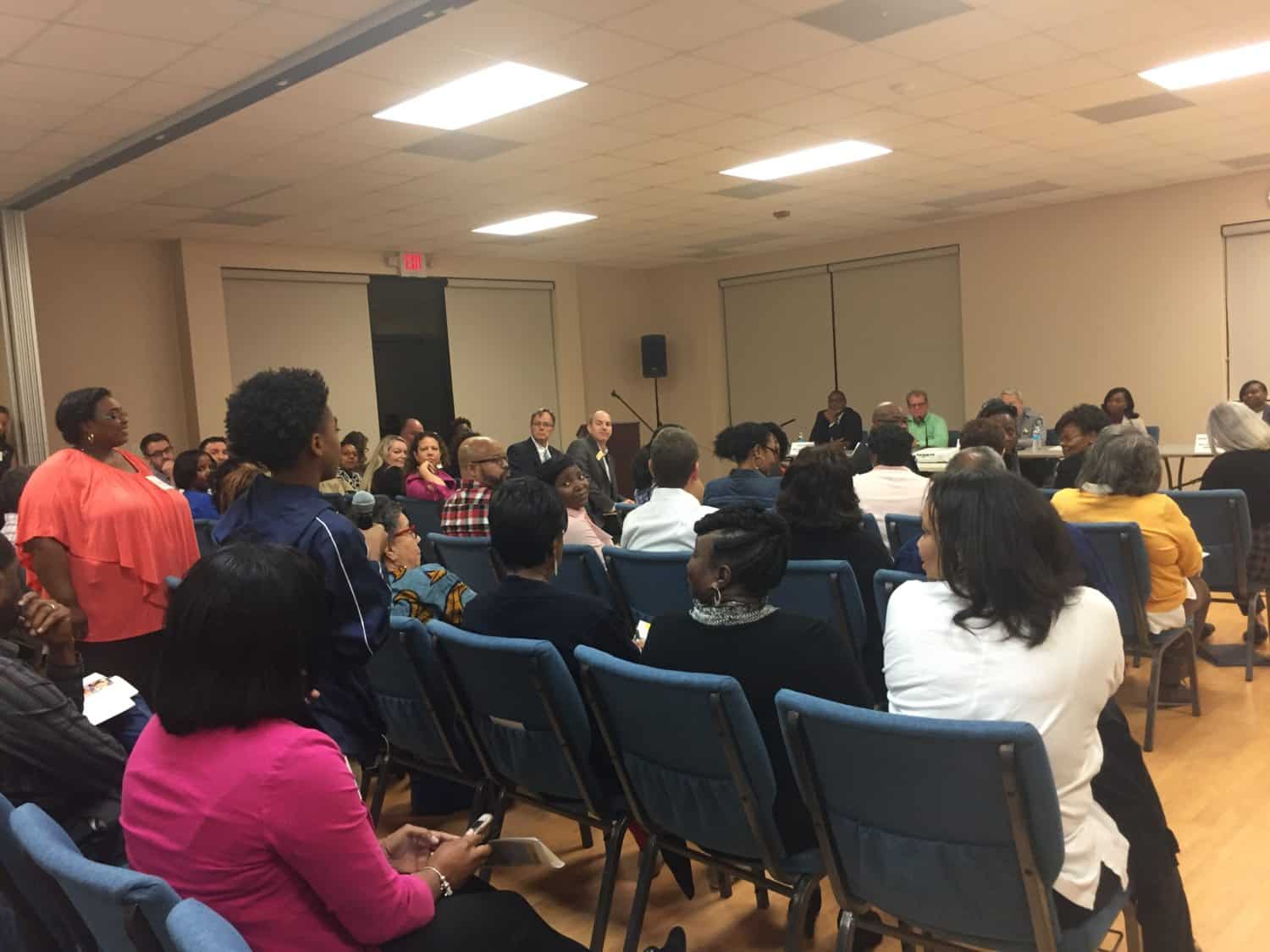Community members and local officials held a public dialogue following the January release of a video where a Rolesville school resource officer (SRO) slammed a female student to the ground. The officer recently resigned. The incident prompted local leaders to address the issue of the school-to-prison pipeline. The community conversation, held at the Rolesville town hall, included Wake County Public School System members, Rolesville officials, teachers, parents and students.
A key issue brought to light by the video is the role of school resource officers. “I think their role is to be there to protect students,” said Wake County Commissioner Jessica Holmes. “When you start extending their roles, that’s when you start getting the school-to-prison-pipeline.”
While the school-to-prison pipeline is a national issue, it is particularly visible within North Carolina schools. North Carolina is one of two states in the nation that charges 16-year-olds as adults.
Wake County Sheriff Donnie Harrison notes that student resource officers are placed in schools to help facilitate the learning process. “We are not there to write tickets,” he said. “We are not there to put people in jail.”
Rolesville Mayor Frank Eagles noted that while SROs are there to mentor students, they have been forced to take on more disciplinary roles.
According to a report released by the Wake County Public School System, the system had 850 student referrals to the police by student resource officers in the 2014-2015 school year. Nearly half of the referrals were to the adult court system. The Rolesville Police Department had 23 student referrals by SROs in the 2014-2015 school year.
A lack of other school staff members may require SROs to take on more disciplinary actions. The national counselor-to-student ratio is one counselor to every 250 students. In Wake County, however, it is one counselor to every 628 students.
One key factor in the school-to-prison pipeline is race. “Race still matters,” said moderator and former Teacher of the Year James Ford. Nationally, black students are 3.5 times more likely to be suspended. In North Carolina and Wake County, they are 4.2 and 3.8 times more likely to be suspended, respectively.
Gender is also an issue. Black girls make up 31 percent of the girls that are referred to law enforcement, but represent only 8 percent of public school students.
While the panelists seemed to mostly agree on the problems regarding discipline within schools, they had many different approaches to solving them.
“I think that we should be increasing nurses. I think that we should be increasing school social workers,” said Holmes. “We should limit [student resource officers’] roles to what they started out being.”
Harrison argued that there should be a greater level of consistency in SRO training across police departments. Others said that there needs to be a culture change within SRO training. There are cultural sensitivity training programs, but participants need to be willing to fully commit in order to see their benefits.
Holmes and Wake County School Board Member Monika Johnson-Holster both emphasized the importance of the “whole child approach” in order to give students a better chance at succeeding in school. Already, WCPSS has five food pantries within high poverty schools.
The Raise the Age Movement, which is fighting to make it so people cannot be tried as adults in North Carolina until the age of 18, shows some promise in staving off the school-to-prison pipeline. District court Judge Craig Croom pointed out, however, that it can only be effective if additional funds are given to the juvenile court system.
Following the two-hour long discussion, Rolesville parent Sonya Stephens did not feel very hopeful. “I sensed a negative undertone from some of the group members, which concerns me,” said Stephens, standing next to her son, an eighth grader in Rolesville. “I did not hear what is going to happen specifically in Rolesville. I want to know what programs are going to be available for a young 14-year-old.”
“It’s just the beginning of the discussion,” Ford said. “Any discourse, specifically around a very thorny issue, is productive.”
A follow-up meeting is scheduled for March 16.
Recommended reading




